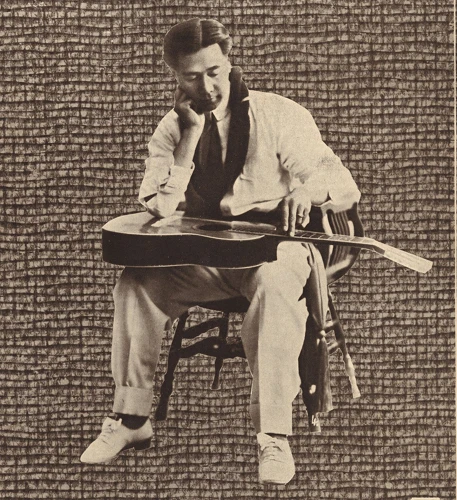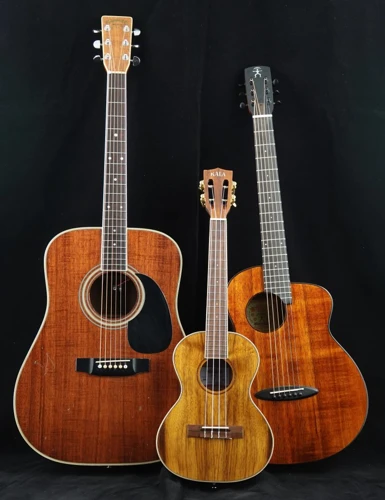The slide guitar has been a prominent and distinctive element in the evolution of country music. Its unique sound and technique have become synonymous with the genre, adding a soulful and bluesy touch to countless classic songs. In this blog post, we will explore the history and evolution of slide guitar in country music, tracing its roots back to its origins and highlighting its impact on the genre over the years.
The Origins of Slide Guitar
The origins of slide guitar can be traced back to the early 1900s when African American blues musicians in the Mississippi Delta region began using objects like glass bottles, knives, or bones to slide along the strings of their guitars, creating a distinctive sliding sound. This technique added a new dimension to the music, allowing players to mimic the vocal melodies and inflections of the blues singers of the time.
As the blues genre gained popularity and spread throughout the United States, the slide guitar technique was adopted by country musicians looking to add a unique and soulful sound to their music. Artists like Jimmie Rodgers and Bob Wills incorporated slide guitar into their songs, helping to shape the sound of early country music and paving the way for future generations of musicians to explore its possibilities.
The Influence of Delta Blues
One of the key influences on the development of slide guitar in country music was the Delta blues style of playing. Artists like Robert Johnson, Son House, and Muddy Waters were masters of the slide guitar, using it to express the raw emotion and power of the blues. Their innovative approach to playing, using open tunings and intricate slide techniques, inspired a new generation of country musicians to experiment with the slide guitar in their own music.
The haunting and melancholic sound of the slide guitar became a defining feature of the country music of the time, adding a touch of authenticity and grit to the songs. Artists like Hank Williams and Johnny Cash embraced the slide guitar, incorporating it into their music and helping to solidify its place as a staple of the country music sound.
The Rise of Lap Steel Guitar
In the 1930s and 1940s, the lap steel guitar emerged as a popular alternative to the traditional slide guitar, offering a new way for musicians to achieve the distinctive sliding sound. The lap steel guitar is played by placing the instrument flat on the player’s lap and using a metal or glass slide to glide along the strings, creating a smooth and sustained sound.
Country artists like Jerry Byrd and Leon McAuliffe popularized the lap steel guitar, incorporating it into their music and showcasing its versatility and range. The lap steel guitar became a mainstay in country music, adding a rich and melodic quality to the songs and influencing generations of musicians to explore its possibilities.
The Golden Age of Slide Guitar
The 1950s and 1960s marked the golden age of slide guitar in country music, with artists like Duane Allman, Ry Cooder, and Bonnie Raitt pushing the boundaries of the instrument and redefining its role in the genre. These musicians brought a new level of technical skill and innovation to slide guitar playing, incorporating complex slide techniques and tunings into their music.
Duane Allman, in particular, became renowned for his virtuosic slide guitar playing, infusing songs like “Layla” by Derek and the Dominos with his signature slide sound. His influence on the genre was profound, inspiring a new generation of slide guitarists to explore the instrument and push its limits in new and exciting ways.
The Evolution of Slide Guitar in Modern Country Music
In recent years, slide guitar has continued to evolve and adapt to the changing landscape of country music. Artists like Derek Trucks, Sonny Landreth, and Kacey Musgraves have embraced the slide guitar, using it to add a contemporary edge to their music and push the boundaries of the genre.
Derek Trucks, known for his soulful and expressive slide guitar playing, has become a leading figure in modern country music, blending elements of blues, rock, and country into his unique sound. His innovative approach to slide guitar has garnered critical acclaim and inspired a new generation of musicians to explore the possibilities of the instrument.
The Future of Slide Guitar in Country Music
As country music continues to evolve and change, the slide guitar remains a timeless and essential element of the genre. Its soulful sound and expressive capabilities have made it a staple in country music, adding depth and emotion to countless classic songs.
Looking ahead, it is clear that the slide guitar will continue to play a vital role in shaping the sound of country music for years to come. As new generations of musicians embrace the instrument and push its boundaries in innovative ways, the legacy of slide guitar in country music will only continue to grow and evolve.
Interested in the evolution of country music instruments? Learn more about the history of guitar straps, guitar picks, session guitarists, Telecaster guitars, and solo acoustic performances in country music!
Conclusion
In conclusion, the history and evolution of slide guitar in country music is a rich and storied one, filled with innovation, creativity, and a deep appreciation for the roots of the genre. From its humble beginnings in the Mississippi Delta to its modern-day resurgence in contemporary country music, the slide guitar has left an indelible mark on the sound and soul of the genre.
As we look to the future, it is clear that the slide guitar will remain a vital and essential element of country music, continuing to inspire and captivate audiences with its haunting sound and expressive capabilities. Its role in shaping the genre cannot be understated, and its influence will continue to be felt for generations to come.


